Everything You Never Wanted To Know About ‘Hardware Wars,’ But We’ll Tell You Anyways
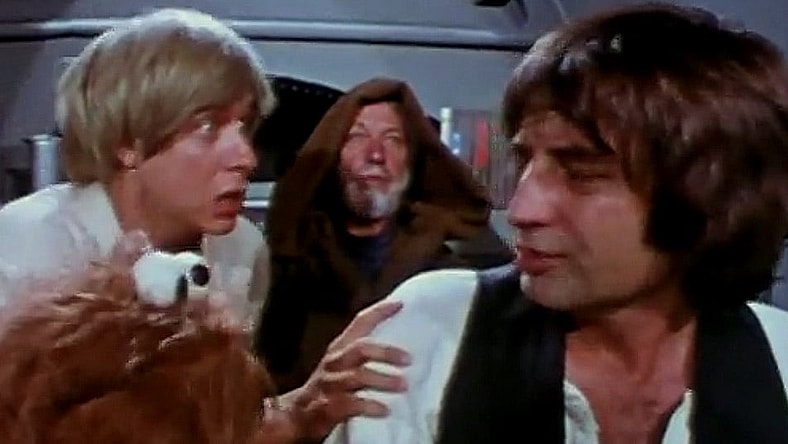
In the grand annals of movie spoof history sits a venerable titan which arguably influenced an entire generation of comedy filmmakers. That long-remembered gem is Hardware Wars, a short flick that capitalized quickly on the feverish worldwide phenomenon that was Star Wars. It debuted a little over a year after George Lucas’s seminal classic had gobbled up box office bucks in 1977, and although it failed to rake in the same amount, it did manage to net over a million dollars in profit against a budget of around $8,000 dollars.

I hold a special fondness for Hardware Wars, thanks in part to my own childhood history. I was born in ’78, which means I missed the original debut of Star Wars by one year. However, by the time I was five years old, I had already mastered the VCR in a way that my parents still had not managed – nor ever would. VHS tapes were all the rage back then, and my father was madly obsessed with the newly-minted REC button, which allowed him to continuously record SuperChannel movies over and over until the tape wore out.
As the story goes, he fell asleep on the couch late one Friday night while letting the VCR record freestyle, and Hardware Wars somehow got caught up in the loop. I discovered the recording shortly after I had seen Star Wars for the first time, which made the comparisons relatively easy. Needless to say, Hardware Wars made my five year old self belly laugh until it hurt, and the rest, as they say, is history.
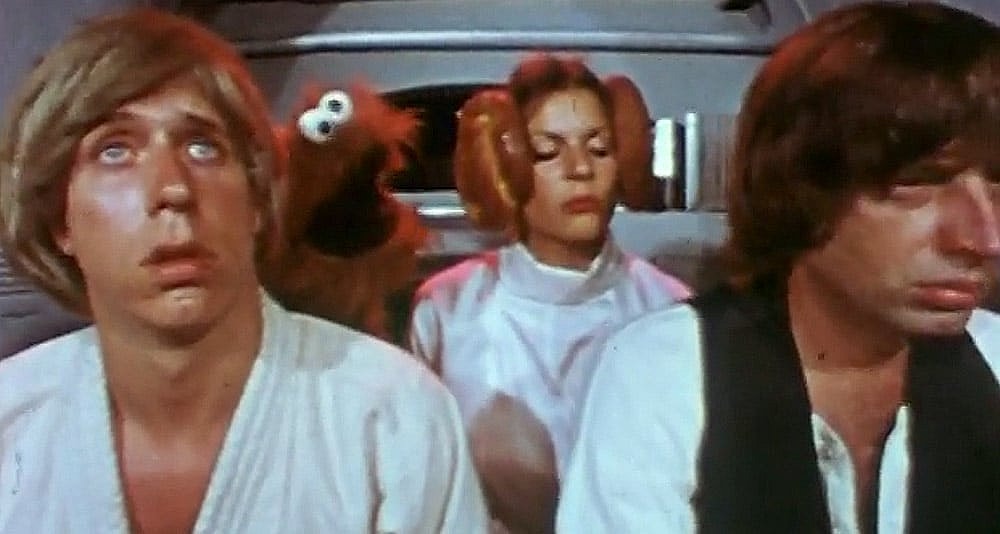
Over the years, the rise of the internet and DVD media gave Hardware Wars a second kick at the can, and cemented the short parody film as an icon with everlasting staying power. While it may seem like another ridiculous, hilarious low-budget spoof, there’s more to the legacy of Hardware Wars than meets the eye. If you’ve never watched this madcap classic before, it’s best to check it out, before sallying forth.
PARODY BEFORE PARODY WENT MAINSTREAM
The cast and crew of Hardware Wars knew they had an opportunity to capitalize on a subgenre of comedy that was relatively untouched at the time. The age of spoof movies like The Naked Gun, Scary Movie and Airplane had yet to emerge, which meant Hardware Wars essentially got first shot. This, at a time when Attack of the Killer Tomatoes and The Kentucky Fried Movie were already making audiences roll in the aisles with laughter.
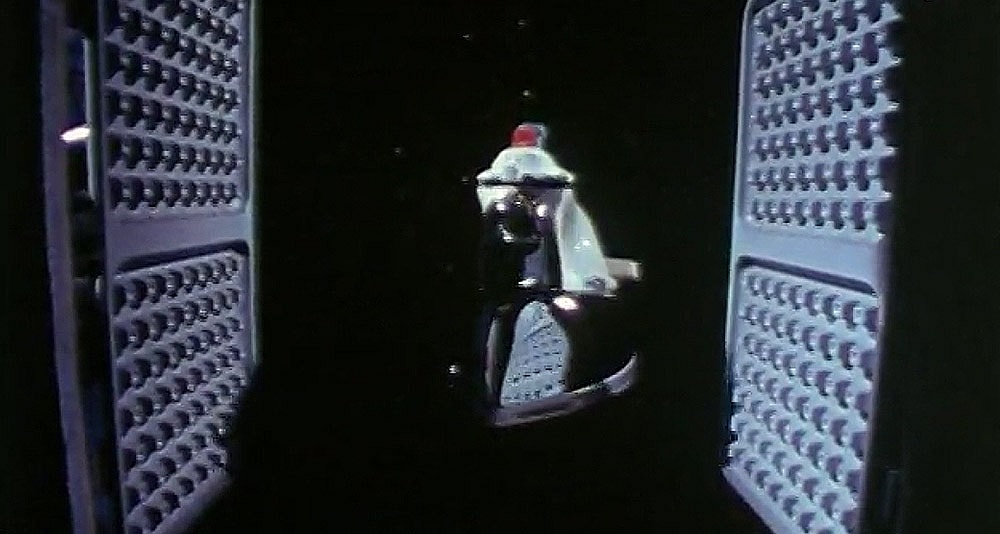
Hardware Wars hammed it up by making fun of Star Wars’ special effects with steamers, waffle irons, vacuum cleaners and kitchen utensils as stand-ins for ships and space stations. On the other end, it lampooned Star Wars’ principle character personalities and names, such as Fluke Starbucker, Ham Salad, Four-Q-Too, Princess Anne-Droid, and Darph Nader (a reference to Ralph Nader). The two-pronged comedic attack was a success, and helped Hardware Wars achieve positive notoriety, while nabbing a bunch of awards at the same time.
THE DIRECTOR WORKED ON ‘SPACEBALLS’ AND ‘RETURN OF THE JEDI’
Director Ernie Fosselius helmed the vision behind Hardware Wars, and it was enough for even George Lucas to appreciate. In fact, Lucas’s love of the parody may have been the catalyst for his small contribution to Return of the Jedi, which came out in 1983. There, Fosselius provided the sobbing voices of Giran and Malakili, the men who cared for Jabba the Hutt’s vicious Rancor, which was subsequently slain by Luke Skywalker.
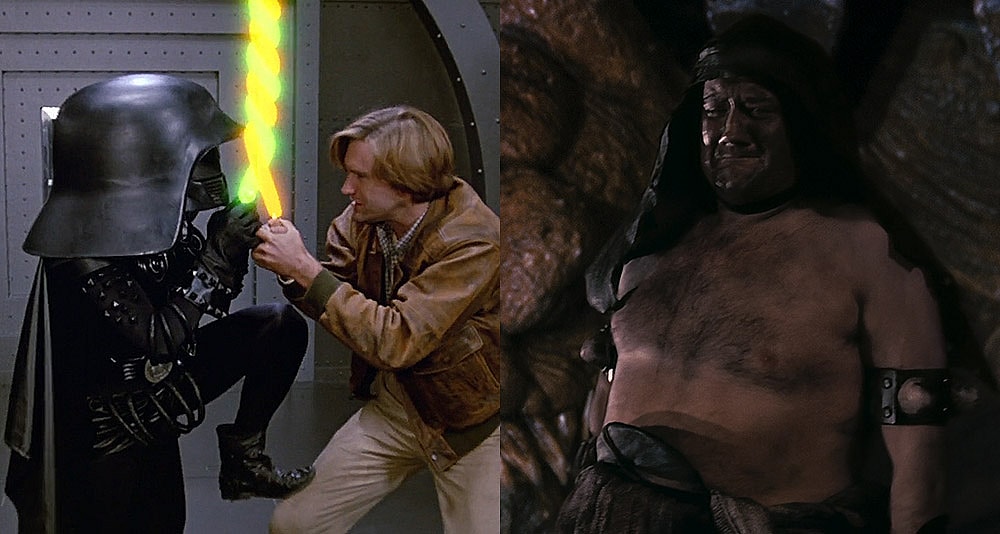
He also helped arrange the song “Lapti Nek,” played by the Max Rebo Band in the original theatrical cut of Return of the Jedi. It is considered the superior version of the song in contrast to the change George Lucas made in the special edition of the film.
Fosselius’ work as a sound editor may have played into that. According to legend, Star Wars sound designer Ben Burtt personally invited him to come in and work on the film. Later, Fosselius would work as a sound effects editor on the mega-popular Spaceballs, directed by Mel Brooks. He also worked on films like Dragon: The Bruce Lee Story, Serial Mom, and Ed Wood.
NARRATOR PAUL FREES HAD THE MOST ACTING CREDITS
The “stars” of Hardware Wars failed to make a longstanding career in the acting business, with only one or two extra credits to their names. However, boom-voice narrator Paul Frees was entirely different. Frees’ work on Hardware Wars was quite surprising, given his prolific list of credits. The man had worked on a plethora of films and TV shows between 1940, where he debuted on The Woody Woodpecker Show, and 1987, when he voiced Wayfarer in The Wind in the Willows TV movie.

Frees was known to have an eclectic and versatile voice range, which helped him nab a lot of lucrative roles. He voiced the evil K.A.R.R. in the classic 1980s Knight Rider series, as well as the sinister wizard Mabruk in The Last Unicorn, Bombur in the 1977 Hobbit animated film, and Boris Badenov from Rocky and Bullwinkle, to name a few. He also lent his talents to series like The Dudley Do-Right Show, The Flintstones, Space Ghost, and Scooby-Doo.
HAM SALAD ACTOR BOB KNICKERBOCKER FORMED A BAND WITH ERNIE FOSSELIUS
Long before he got into filmmaking, director Ernie Fosselius created a garage rock band called The Final Solution (also Earth Mother and The Final Solution) with Hardware Wars actor Bob Knickerbocker, who played Ham Salad. The band sought to distance themselves from the hippie look and sound of other prolific San Francisco-area bands in the mid-60s, as evidenced by their downbeat lyrics and style.
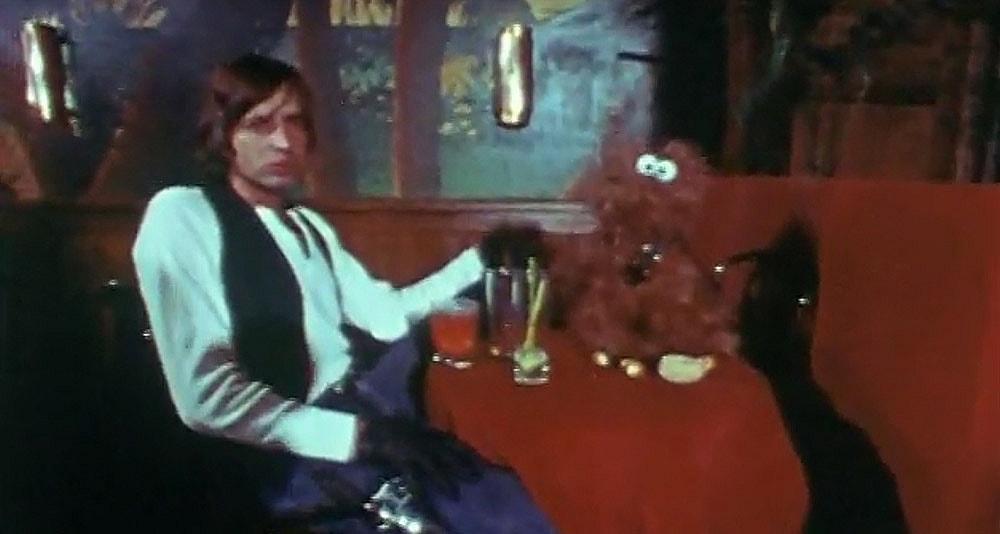
RELATED: Taika Waititi Responds To Recent Star Wars Report: “That Rumor’s About Three Years Old”
The band never actually released an album, but they were considered a major force in San Fran’s live music scene. After failing to secure a contract with a record label in Chicago, The Final Solution disbanded in 1967, allowing both Fosselius and Knickerbocker to team up a decade later to work on Hardware Wars.
ERNIE FOSSELIUS’ COMMENTARY TRACK
There are a few copies of director Ernie Fosselius’ commentary track on various prints of Hardware Wars, particularly the Collector’s Edition. Once again, Fosselius spoofs his own spoof with bizarre, hilarious commentary designed to poke fun at other people’s commentary tracks. Fosselius shares memories of chasing away bears with a flashlight in the Canadian wilderness, comparing the number of steam ports on Westinghouse A23 and A24 steam irons, and a crafts services truck operated by a plumber named Earl Schmelnecker.
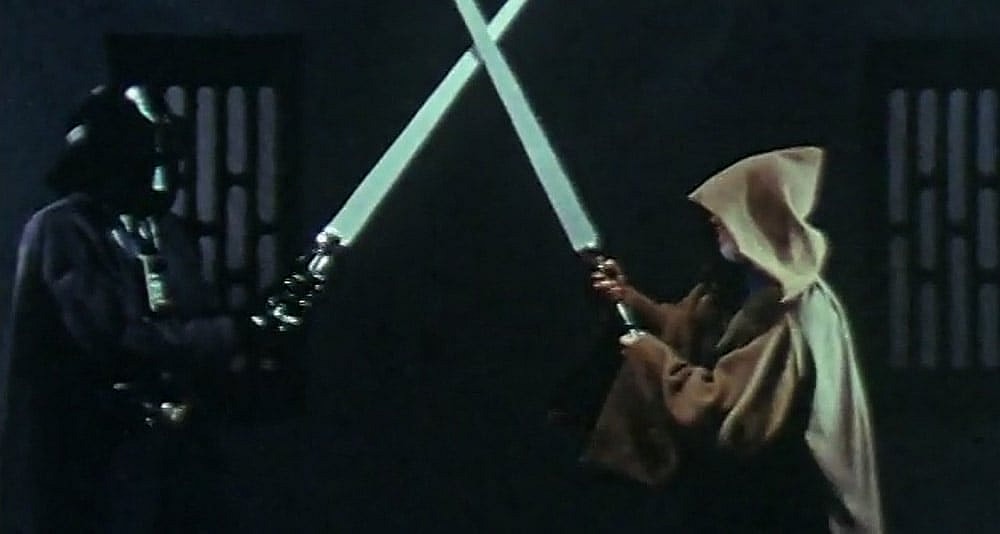
The track is hilarious, with Fosselius’ own inner monologue rising to the service to express how unprepared he is for the commentary. Along the way, he peppers the track with anecdotes that may, or may not be true, including the scene where Fluke and Augie walk into a local bar. “It was the first location of the shoot. The bar scene. I remember going in there…ummm…but I don’t remember coming out.”
THE IMPORTANCE OF SPECIAL EFFECTS
According to Ernie Fosselius, the low-budget special effects used in the film were a distinct part of its charm, and when a group of visual effects editors tried to remove items like strings holding up the various appliances and power tools in the film, he was appalled. These were considered part of the innate charm of the spoof, and of course, it’s easy to see why.
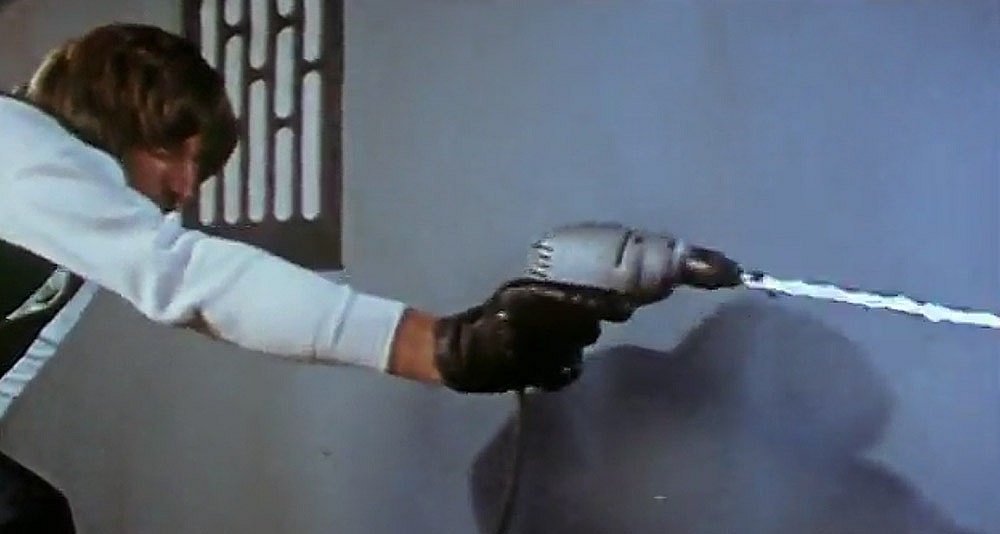
The use of household tools and appliances was twofold – to generate laughter while keeping production costs down. However, the same premise extended to the special effects.
In the Hardware Wars commentary track, Fosselius spoofed himself by lamenting the poor laser beam effects. “Oh, my God! It just hit me! I paid these guys big bucks. I mean, big 1977 bucks to create original effects, and they…looks like they just scratched the negative with a needle and laughed all the way to the bank!”
NEXT: Mark Hamill Virtue Signals Over Ukraine War With Autographed Star Wars Posters
